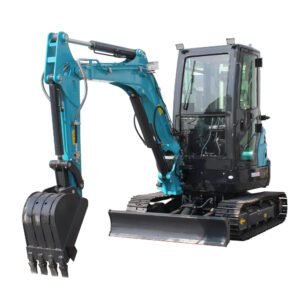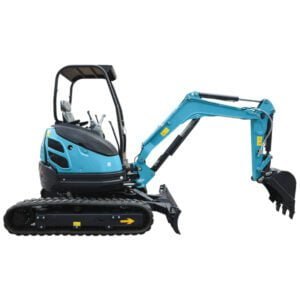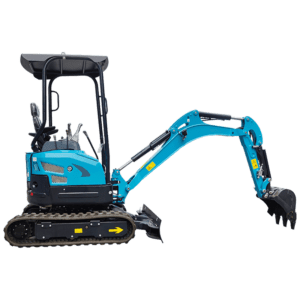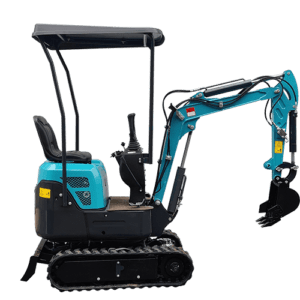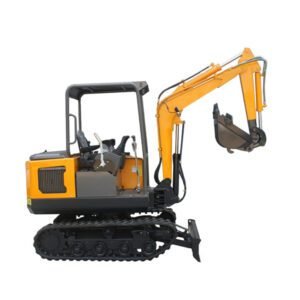Correo electrónico: [email protected] WhatsApp: 8618266768780
Dientes de la cuchara excavadora: materiales y durabilidad explicados
¡Bienvenido a mi blog!
Antes de profundizar en el contenido, me encantaría que te unas a mí en mis plataformas de redes sociales, donde comparto más información, interactúo con la comunidad y publico actualizaciones. Puedes conectarte conmigo de la siguiente manera:
Facebook: https://www.facebook.com/profile.php?id=100072217509763
LinkedIn: https://www.linkedin.com/company/74949059/admin/dashboard/
YouTube:www.youtube.com/@tractormanufacturer-lc5qz,www.youtube.com/@excavatormanufacturers-sn9hk
TikTok: www.tiktok.com/@tractormanufacturer, www.tiktok.com/@excavatormanufacturers
Ahora, comencemos nuestro viaje juntos. Espero que el contenido que se incluye aquí te resulte interesante, interesante y valioso.
Los dientes del cucharón de excavadora desempeñan un papel vital en el rendimiento y la eficiencia de las excavadoras, lo que influye en la excavación, la carga y la productividad general en las obras. Este artículo profundiza en los materiales, los factores de durabilidad y las consideraciones para elegir los dientes adecuados para el cucharón de excavadora. Al comprender estos elementos, puede prolongar la vida útil de su equipo y mejorar la eficiencia operativa.
Tabla de contenido
- Introducción
- Por qué son importantes los materiales para los dientes de las cucharas de excavadora
- Factores clave que influyen en la durabilidad de los dientes del cucharón de excavadora
- Materiales principales para los dientes del cucharón de excavadora: una comparación
- Cómo mejorar la vida útil de los dientes del cucharón de la excavadora
- Preguntas frecuentes sobre los dientes del cucharón de excavadora
- Conclusión
Introducción
Los dientes de la cuchara excavadora son componentes esenciales que influyen directamente en el rendimiento de excavación de la máquina. Ya sea que trabaje en una obra de construcción, minería o demolición, los dientes de cuchara adecuados pueden marcar una diferencia significativa tanto en la productividad como en la rentabilidad. En este blog, exploraremos los tipos de materiales utilizados en los dientes de la cuchara excavadora y los factores que contribuyen a su durabilidad. Comprender estos aspectos le ayudará a elegir los dientes de cuchara adecuados para sus necesidades específicas, ahorrándole tiempo y dinero a largo plazo.
Por qué son importantes los materiales Excavador Dientes del cucharón
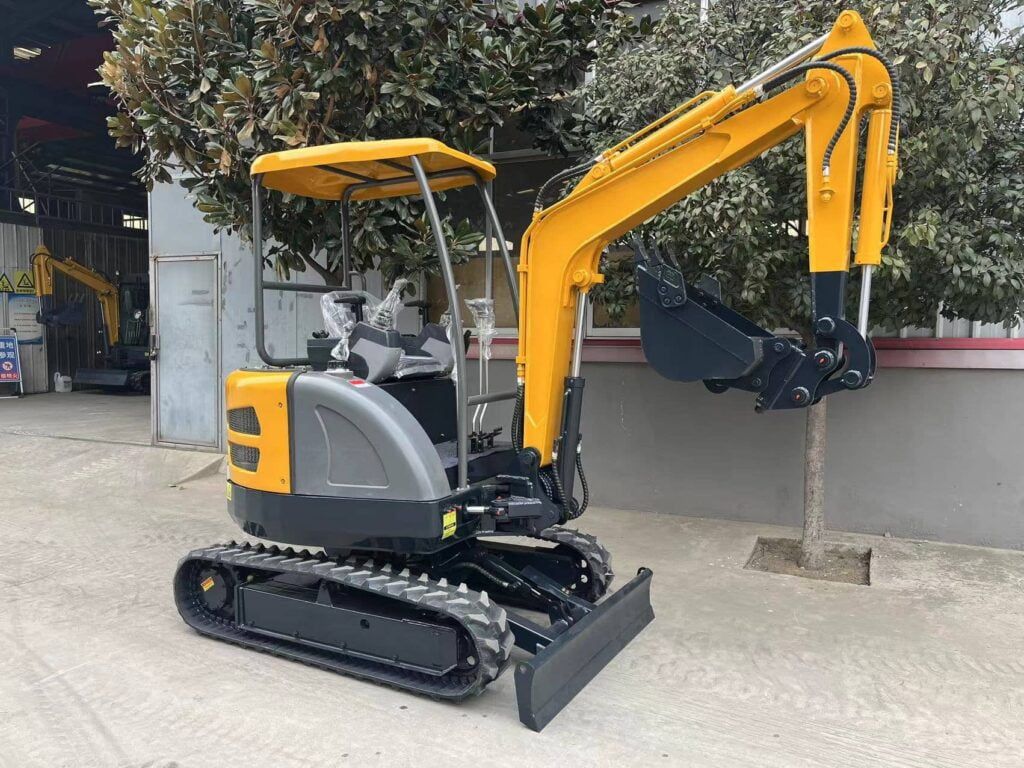
Por qué son importantes los materiales para los dientes de las cucharas de excavadora (ampliado)
El material utilizado en la fabricación de los dientes de las cucharas de excavadora es uno de los factores más críticos que afectan directamente su rendimiento general, durabilidad y vida útil. Cada material ofrece características únicas que pueden mejorar o reducir la eficacia de los dientes de las cucharas, dependiendo de la naturaleza de la obra, el tipo de material excavado y las exigencias operativas específicas. A continuación, se detalla la importancia de la elección del material para los dientes de las cucharas de excavadora:
1. Resistencia al impacto: Manejo en condiciones adversas
Las excavadoras suelen trabajar en entornos muy exigentes donde se encuentran con materiales como roca dura, grava o tierra compactada. Los dientes del cucharón se ven expuestos repetidamente a altos niveles de impacto durante estas tareas, ya sea al atravesar superficies difíciles o al extraer escombros pesados. Para resistir estos impactos, el material utilizado debe ser resistente y duradero. Si los dientes están fabricados con materiales de baja calidad, pueden agrietarse, astillarse o desgastarse rápidamente, lo que implica reemplazos frecuentes y costos adicionales.
Por ejemplo, el acero aleado es ampliamente preferido debido a su capacidad para soportar fuerzas de alto impacto sin comprometer la integridad estructural. Su tenacidad inherente garantiza que los dientes del cucharón permanezcan intactos, incluso durante excavaciones agresivas.
2. Resistencia al desgaste: prolongando la vida útil de su equipo
Los dientes de las cucharas excavadoras están constantemente sometidos a la fricción y la abrasión de materiales duros como rocas, arena y grava. Con el tiempo, este desgaste continuo erosiona los dientes, reduciendo su eficiencia y obligando a reemplazarlos. La resistencia al desgaste del material es fundamental para la vida útil de los dientes antes de tener que reemplazarlos. Cuanto más duro y resistente al desgaste sea el material, mayor será la vida útil de los dientes, lo que se traduce en menos interrupciones y menores costos de mantenimiento.
Materiales como el acero con alto contenido de manganeso, conocido por su alta resistencia al desgaste, se suelen elegir para aplicaciones donde la excavadora estará en contacto constante con materiales abrasivos. Este material puede soportar la fricción constante sin desgastarse tan rápidamente como los metales más blandos.
3. Dureza vs. Tenacidad: Encontrar el equilibrio adecuado
Dos propiedades clave de los materiales utilizados en los dientes de las cucharas de excavadora son la dureza y la tenacidad, y encontrar el equilibrio adecuado entre ambas es esencial. La dureza se refiere a la capacidad de un material para resistir hendiduras y arañazos, lo cual es crucial al excavar en superficies duras. Sin embargo, los materiales extremadamente duros pueden ser frágiles y propensos a agrietarse o romperse bajo presión intensa. Por otro lado, la tenacidad se refiere a la capacidad del material para absorber energía y resistir la fractura.
Un diente de cucharón demasiado duro puede penetrar fácilmente en terrenos difíciles, pero podría romperse o astillarse si golpea un objeto particularmente duro, como una roca. Por el contrario, un diente demasiado duro podría no romperse, pero podría desgastarse demasiado rápido en entornos abrasivos. Por eso, materiales como el acero aleado, que logran un buen equilibrio entre dureza y tenacidad, se utilizan comúnmente en dientes de cucharón de uso general.
4. Adaptabilidad a diferentes entornos: Soluciones personalizadas
La diversidad de lugares de trabajo y tareas exige que los dientes de las cucharas excavadoras se adapten a diferentes condiciones de trabajo. Por ejemplo, al trabajar en entornos altamente abrasivos, como canteras de arena o minería, los dientes de carburo de tungsteno ofrecen una resistencia superior al desgaste, lo que prolonga significativamente la vida útil del equipo. Por el contrario, materiales más blandos, como el acero al carbono, pueden ser más adecuados para operaciones ligeras, como la excavación de zanjas o suelos más blandos.
5. Costo vs. Rendimiento: Una inversión a largo plazo
Si bien los materiales de alta calidad para los dientes de las cucharas de excavadora suelen tener un costo inicial más alto, pueden generar ahorros significativos a largo plazo. Los materiales más económicos pueden desgastarse más rápido, lo que implica reemplazos frecuentes y un mayor tiempo de inactividad. Por el contrario, invertir en materiales duraderos y resistentes al desgaste puede reducir los costos de mantenimiento y reemplazo con el tiempo, aumentando la eficiencia operativa general de su equipo.
Factores clave que influyen en la durabilidad de Excavador Dientes del cucharón
Existen varios factores que determinan la vida útil de los dientes del cucharón de excavadora. Al comprender estos factores, podrá tomar decisiones informadas al seleccionar los dientes del cucharón para su equipo.
1. Composición del material
La durabilidad de los dientes de las cucharas de excavadora depende en gran medida de la composición de los materiales utilizados. El acero de aleación de alta calidad suele ser el preferido por su excelente equilibrio entre dureza y flexibilidad.
2. Tratamiento térmico
Un tratamiento térmico adecuado puede mejorar significativamente la durabilidad de los dientes del cucharón. Endurece la superficie exterior a la vez que conserva un núcleo interior resistente, lo que permite que los dientes resistan el desgaste y absorban los impactos.
3. Diseño y montaje
El diseño y ajuste adecuados de los dientes del cucharón son cruciales para garantizar un desgaste uniforme y una mayor durabilidad. Un diseño o ajuste inadecuado de los dientes puede provocar un desgaste desigual, lo que puede provocar una falla prematura.
4. Condiciones operacionales
Los tipos de materiales con los que interactúan los dientes del cucharón de la excavadora (ya sea tierra blanda, roca dura o grava abrasiva) pueden afectar la tasa de desgaste. Comprender las condiciones de operación es vital para elegir el material y el diseño adecuados para los dientes del cucharón.
5. Prácticas de mantenimiento
La inspección regular y el reemplazo oportuno de los dientes desgastados pueden prolongar la vida útil de los dientes del cucharón de su excavadora. Descuidar el mantenimiento puede provocar un desgaste acelerado y mayores costos con el tiempo.
Los mejores materiales para Excavador Dientes de cubo: una comparación
Seleccionar el mejor material para los dientes del cucharón de su excavadora es crucial para maximizar su rendimiento y vida útil. La siguiente tabla compara los materiales más comunes para los dientes del cucharón de excavadora, centrándose en propiedades clave como dureza, tenacidad y resistencia al desgaste.
| Tipo de material | Dureza (HRC) | Tenacidad | Resistencia al desgaste | Mejor utilizado para |
|---|---|---|---|---|
| Acero aleado (fundido) | 50-55 | Alto | Alto | Excavación general, arena, grava. |
| Acero con alto contenido de manganeso | 35-40 | Muy alto | Moderado | Excavación de rocas, minería |
| Acero al cromo | 60-65 | Bajo | Muy alto | Materiales duros y abrasivos |
| Acero carbono | 30-40 | Moderado | Bajo | Aplicaciones de trabajo ligero |
| con punta de carburo de tungsteno | 70+ | Bajo | Extremadamente alto | Trabajos pesados de roca o demolición |
Como se muestra en la tabla, materiales como el acero aleado y el acero con alto contenido de manganeso ofrecen una combinación equilibrada de tenacidad y resistencia al desgaste, lo que los hace adecuados para la mayoría de las aplicaciones de construcción. Por otro lado, los dientes con punta de carburo de tungsteno ofrecen la mayor resistencia al desgaste, ideales para entornos altamente abrasivos.
Cómo mejorar la vida útil de Excavador Dientes del cucharón
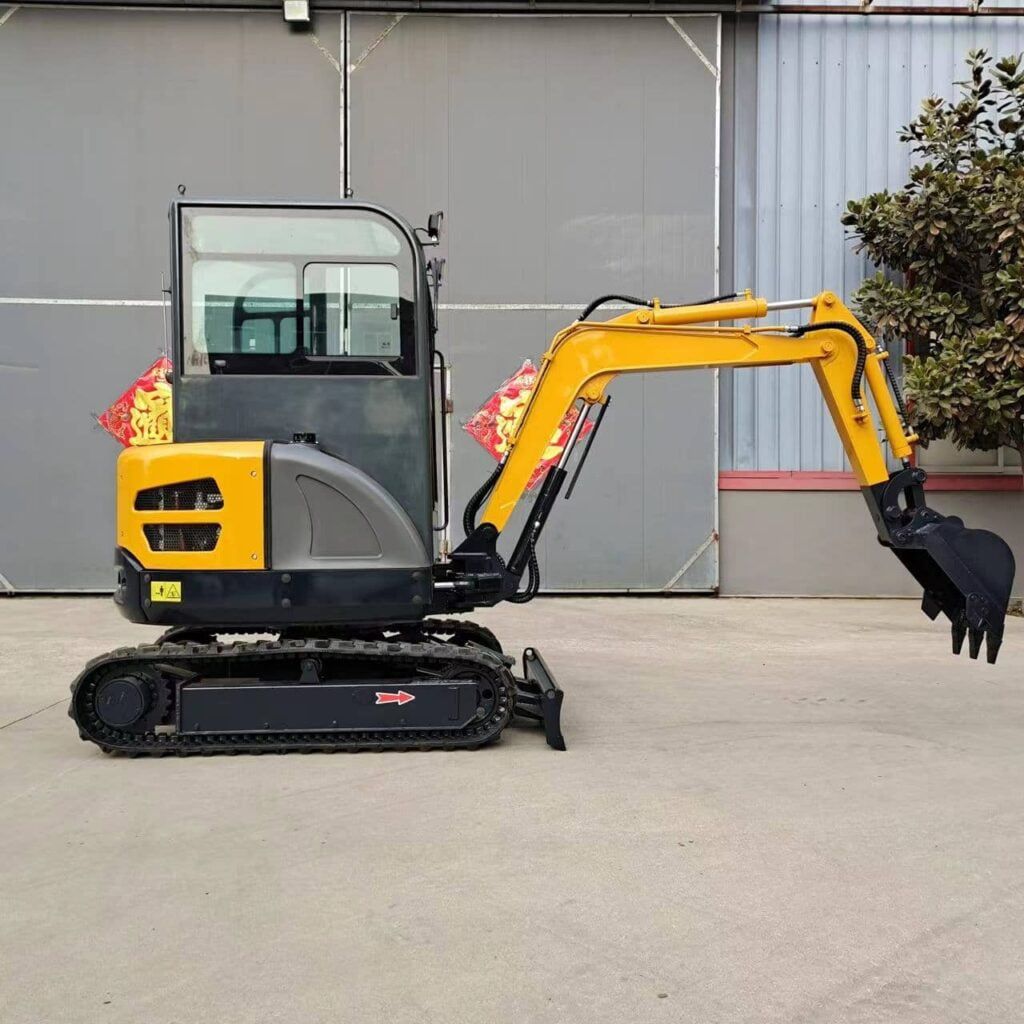
Si bien la selección del material es fundamental para la durabilidad, el uso y el mantenimiento adecuados son igualmente importantes para prolongar la vida útil de los dientes de la cuchara excavadora. A continuación, se ofrecen algunos consejos prácticos para prolongar su vida útil:
1. Inspección de rutina
Las inspecciones visuales frecuentes pueden ayudar a identificar patrones de desgaste o grietas a tiempo. Esto permite un reemplazo oportuno antes de que el desgaste se acelere, evitando así daños al cucharón.
2. Dientes giratorios
Para asegurar un desgaste uniforme, gire los dientes del cucharón regularmente. Esta práctica distribuye el desgaste entre todos los dientes, evitando el deterioro prematuro de algunos.
3. Usando los dientes correctos para el trabajo
Los diferentes diseños de dientes del cucharón están optimizados para distintos tipos de materiales. Por ejemplo, los dientes para roca son más adecuados para entornos duros y rocosos, mientras que los dientes de uso general funcionan bien para suelos más blandos. Usar el tipo de diente correcto para su aplicación puede evitar un desgaste innecesario.
4. Lubricación
La aplicación de grasa o lubricantes a los dientes del cucharón puede reducir la fricción y la abrasión, prolongando aún más su vida útil.
5. Adjunto adecuado
Asegúrese de que los dientes del cucharón estén bien sujetos al vástago. Los dientes flojos pueden causar un desgaste desigual o incluso caerse durante el funcionamiento, lo que puede provocar tiempo de inactividad.
Conclusión
Los dientes del cucharón de excavadora son un componente fundamental que afecta directamente el rendimiento y la vida útil de su máquina. Al seleccionar el material adecuado y garantizar un mantenimiento adecuado, puede maximizar tanto la eficiencia como la vida útil de los dientes del cucharón. El acero aleado, el acero con alto contenido de manganeso y el carburo de tungsteno se encuentran entre los materiales más duraderos, cada uno adecuado para diferentes condiciones de operación. Las inspecciones regulares, las prácticas de mantenimiento y el uso de los dientes correctos para cada tarea pueden prolongar aún más su vida útil, ayudándole a aprovechar al máximo su equipo.
Preguntas frecuentes sobre los dientes del cucharón de excavadora
1. ¿Qué materiales son los mejores para los dientes de la cuchara excavadora?
El acero aleado y el acero con alto contenido de manganeso se utilizan comúnmente por su equilibrio entre dureza y tenacidad. Los dientes con punta de carburo de tungsteno son ideales para aplicaciones altamente abrasivas.
2. ¿Con qué frecuencia debo reemplazar los dientes del cucharón de la excavadora?
La frecuencia del reemplazo depende del material extraído y de la calidad de los dientes. Las inspecciones periódicas pueden ayudarle a determinar cuándo es necesario el reemplazo.
3. ¿Cuál es la diferencia entre los dientes de roca y los dientes de uso general?
Los dientes de roca están diseñados para materiales duros y abrasivos, mientras que los dientes de uso general son adecuados para suelos más blandos y aplicaciones menos exigentes.
4. ¿Puedo reutilizar lo usado? excavador ¿dientes de cubo?
A veces es posible remodelar o reparar los dientes desgastados, pero generalmente resulta más rentable reemplazarlos, especialmente si están muy desgastados o agrietados.
5. ¿Cuáles son las señales de que mis dientes de cuchara necesitan ser reemplazados?
Las señales comunes incluyen desgaste desigual, grietas o puntas rotas. La pérdida de eficiencia al excavar es otro indicador de que los dientes podrían necesitar reemplazo.
Sobre nosotros
Shandong Qilu Industrial Co., Ltd. es un fabricante y exportador profesional que integra el desarrollo y la producción de excavadoras, cargadoras y tractores. Brindamos el mejor servicio, absolutamente.
Mensajes recientes
demostración de vídeo
-1.png)
¡Póngase en contacto con nosotros hoy!
¿Alguna pregunta, cotización o consulta? Haga clic en el botón para enviar el mensaje.
Qilu Industrial siempre estará aquí para ayudar.

